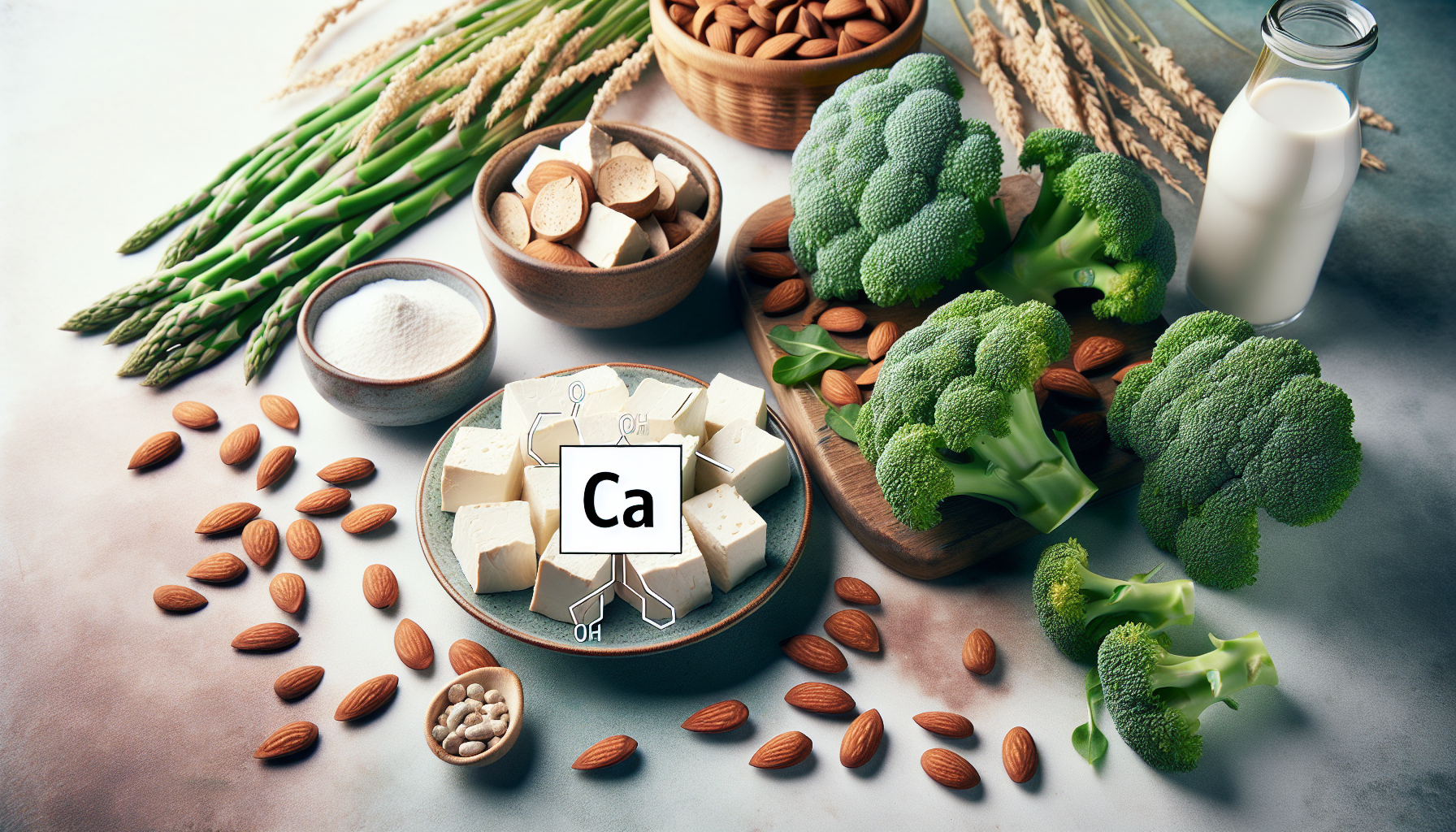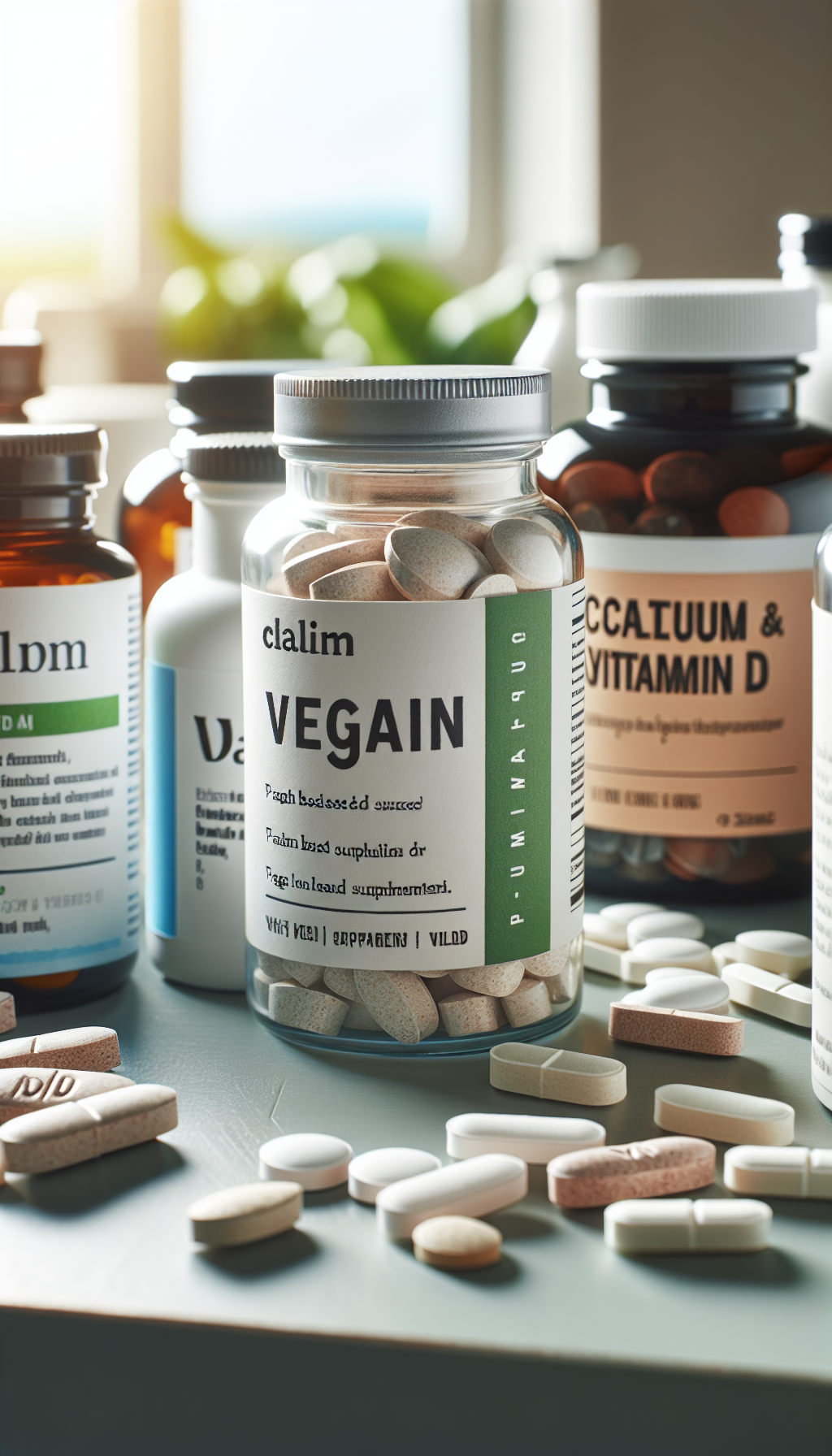Maintaining strong bones is crucial for overall health and functionality, especially as we age. For individuals following a vegan diet, ensuring adequate intake of bone-supporting nutrients like calcium and vitamin D can sometimes be challenging. This article explores various vegan sources of these essential nutrients and offers guidance on how to optimize vegan nutrition for bone health.
Understanding the Role of Calcium and Vitamin D in Bone Health
Calcium is the most abundant mineral in the body, predominantly found in bones and teeth, where it provides structural strength. Vitamin D, on the other hand, is essential for calcium absorption and bone growth. Together, these nutrients play a pivotal role in maintaining bone density and preventing disorders such as osteoporosis.
While dairy products are often touted as the go-to sources of calcium, there are numerous plant-based alternatives that can equally contribute to a strong skeletal structure. Additionally, with careful planning, vegans can obtain enough vitamin D from diet and sunlight exposure to meet their needs.
Vegan Sources of Calcium
Here is a selection of calcium-rich vegan foods that can help maintain bone health:
- Fortified Plant Milks: Many plant milks are fortified with calcium and vitamin D, making them excellent alternatives to cow’s milk.
- Leafy Greens: Vegetables like kale, collard greens, and bok choy have high calcium content.
- Tofu and Tempeh: These soy products often contain added calcium and are versatile protein sources.
- Nuts and Seeds: Almonds, chia seeds, and sesame seeds are good sources of calcium.
- Legumes: Beans, lentils, and chickpeas contain calcium and other bone-supporting nutrients like magnesium.
Integrating a variety of these foods into your diet can help ensure adequate calcium intake. For more in-depth information, the article on Dairy Alternatives for Lactose Intolerant Individuals Seeking Calcium provides additional insights into non-dairy sources of calcium.
Vegan Sources of Vitamin D
Vitamin D can be more challenging to obtain from a vegan diet, as the nutrient is predominantly found in animal products. However, there are vegan-friendly ways to ensure sufficient vitamin D levels:
- Sunlight: The body can synthesize vitamin D when skin is exposed to sunlight. Aim for moderate sun exposure while being mindful of skin health.
- Fortified Foods: Similar to plant milks, some cereals and orange juices are fortified with vitamin D.
- Mushrooms: Certain mushrooms that have been exposed to UV light contain vitamin D2, which can contribute to the daily intake.
To complement dietary intake, vegans may consider supplements, particularly vitamin D2 or lichen-derived vitamin D3, which is vegan-friendly. The article on Strategies for Bone Density Conservation in Postmenopausal Women also discusses the importance of vitamin D in bone health and offers strategies that are applicable to vegans.
The Importance of Exercise for Vegan Bone Health
Diet is just one part of the equation when it comes to bone health. Regular physical activity, particularly weight-bearing exercises like walking, running, and strength training, can help improve bone density and strength.
For specific exercise recommendations, the article on The Role of Exercise in Bone Health During Pregnancy provides insights that are applicable beyond pregnancy, highlighting exercises that promote bone health.
External Resources for Further Information
- The Vegetarian Resource Group (website) offers comprehensive information on plant-based nutrition, including detailed guides on calcium and vitamin D sources for vegans.
- The Vegan Society (website) provides practical advice on maintaining adequate nutrient levels, including for those nutrients crucial for bone health.
- NutritionFacts.org (website) features evidence-based videos and articles on the latest research in nutrition, including vegan diets and bone health.
Challenges and Considerations
While a vegan diet can support bone health effectively, it is essential to be mindful of the potential for nutrient deficiencies. Regular health check-ups and blood tests can help monitor levels of calcium, vitamin D, and other relevant nutrients. In some cases, supplementation may be necessary to achieve optimal levels.
For those with additional health considerations, such as food allergies or chronic conditions, personalized dietary advice from a healthcare professional is recommended. The article on Bone Health Considerations for People with Food Allergies addresses some of these challenges and offers practical tips.
Conclusion
A well-planned vegan diet, rich in calcium and vitamin D, along with regular exercise, can support robust bone health. By incorporating a diverse range of plant-based foods and considering fortified products or supplements as needed, vegans can confidently maintain their skeletal strength. Remember to consult with a healthcare provider for personalized guidance, especially if you have specific health concerns or dietary restrictions.



